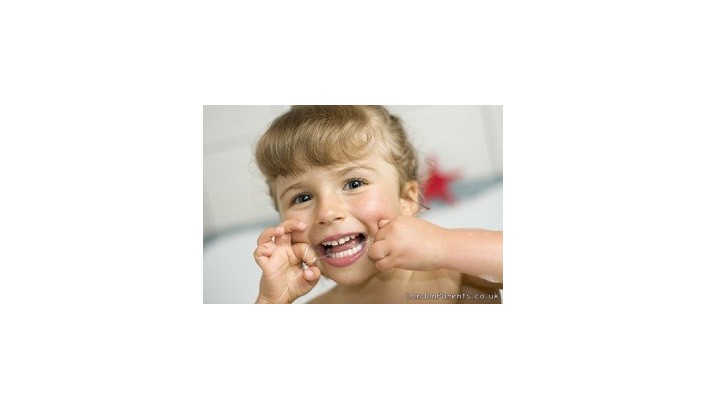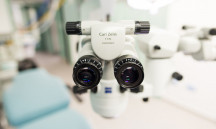Article Categories
News
-
20 July
-
04 November
-
10 July
-
12 June
-
05 June
-
24 September
-
19 September
-
10 May
-
26 April
Website Categories
Top tips for maintaining good oral health in your child

Good oral health is essential to prevent tooth decay and gum disease and to achieve normal growth and development of the mouth, jaws and teeth. The primary (baby or milk) teeth keep space in the mouth for the adult teeth. A healthy mouth and healthy teeth make eating for your child more effective and enjoyable. A nice smile and nice teeth will also help to develop your child’s confidence and self esteem. The following tips should help you with maintaining good oral health in your child.
Plaque is a build up of bacteria on the teeth and if not regularly removed may cause tooth decay, gum disease and even tooth loss. Start to brush your baby’s teeth once the first tooth appears. Encourage your toddler to start toothbrushing at an early age also but always make sure that you still clean his/her teeth twice a day as well.
Brush for a full two minutes. Brushing your child’s teeth at night time is particularly important. Children can generally brush their teeth by about 8 years of age but continue to supervise their toothbrushing. You can check how well your child is brushing by using disclosing tablets which show the areas where plaque has been left.
Fluoride is very important to prevent tooth decay. Use a toothpaste with approximately 1000 ppm / 1100 ppm of fluoride for your child and always make sure that you dispense a small pea-sized amount on your child’s toothbrush. Your child should spit the toothpaste out and should not rinse his/her mouth after brushing. He/ she should avoid swallowing the toothpaste as too much fluoride can be harmful.
3. Diet advice
When plaque reacts with sugar in the mouth, it produces harmful acids that are the main cause of dental problems. The more sugar in your child’s diet, and more importantly, the more often sugar is in the mouth, the greater the opportunity for the bacteria to produce acids that cause tooth decay. Stop bottle and breast feeding your infant by 12 months of age. Never put sweet liquids such as juice in your infant’s bottle or in a feeding cup.
Avoid sugary snacks (e.g. sweets, chocolates, dried fruits, biscuits) and sugary drinks (e.g. fruit juice, soft drinks and fizzy drinks) between meals and bedtime. If your child is thirsty between meals, give him / her pain water. Use sugar-free medicines where appropriate.
4. Fissure sealants
The fissures and grooves on the biting surfaces of the primary and
permanent molar teeth may be particularly deep and inaccessible to
proper toothbrushing. Your paediatric (children’s) dentist may recommend
the placement of sealants (plastic coatings) on the biting surfaces of
these teeth in order to prevent tooth decay. This is a very worthwhile
preventive measure especially if applied on the first and second
permanent molar teeth once they are fully erupted. Your dentist will
monitor the fissure sealants as they will wear over time and need
repairing or replacement.
5. Flossing
There is generally spacing between your infant and toddler’s teeth when they first appear in the mouth. These gaps tend to close between the molars after the first few years. Flossing can help to clean the surfaces between teeth which a toothbrush cannot reach. Decay can begin between the teeth but flossing may prevent this. The use a flossette may help to make flossing your child’s teeth easier. Generally, your child will need help with flossing until their teens.
6. Prevention of Trauma
More than a third of all children experience injury to their front teeth by their teenage years. If your child damages his/her front teeth, contact your dentist or a paediatric dentist immediately to get advice about what to do.
Make sure that if your child plays contact sports (eg. football, rugby, baseball, etc.) that you ask your paediatric dentist about making a mouthguard for your child. If your child’s upper front teeth are very prominent, your paediatric dentist may refer your child to an orthodontist so that braces can be considered to straighten your child’s teeth.
Schedule an appointment with a paediatric dentist when your child’s
first teeth appear or at least by about 12 months of age. It is
important to take your child to your paediatric dentist from an early
age and ask about preventive care so that problems such as tooth decay
and gum disease can be avoided. Your paediatric dentist will also
monitor normal growth and development of your child’s teeth and mouth.
Your paediatric dentist will schedule visits for your child every 6
months or more frequently if needed. Your paediatric dentist will aim to
provide your child with a positive dental experience so that
maintaining a healthy mouth becomes a lifelong goal.
Related articles
Parenting is no easy task, and for Jordan and Briana Driskell, raising their quintuplets—Zoey, Dakota, Hollyn, Asher, and Gavin&mdash...
Read moreFocus on back to school - include a free...
Emma WallaceThe summer holidays are drawing to a close and September sees pupils heading back to the classroom. Alongside buying new uniform and statio...
Read moreA Starbucks employee went viral after sharing a video where they broke down in tears due to being scheduled for an eight-hour shift. ...
Read more0 comments
No messages yet




